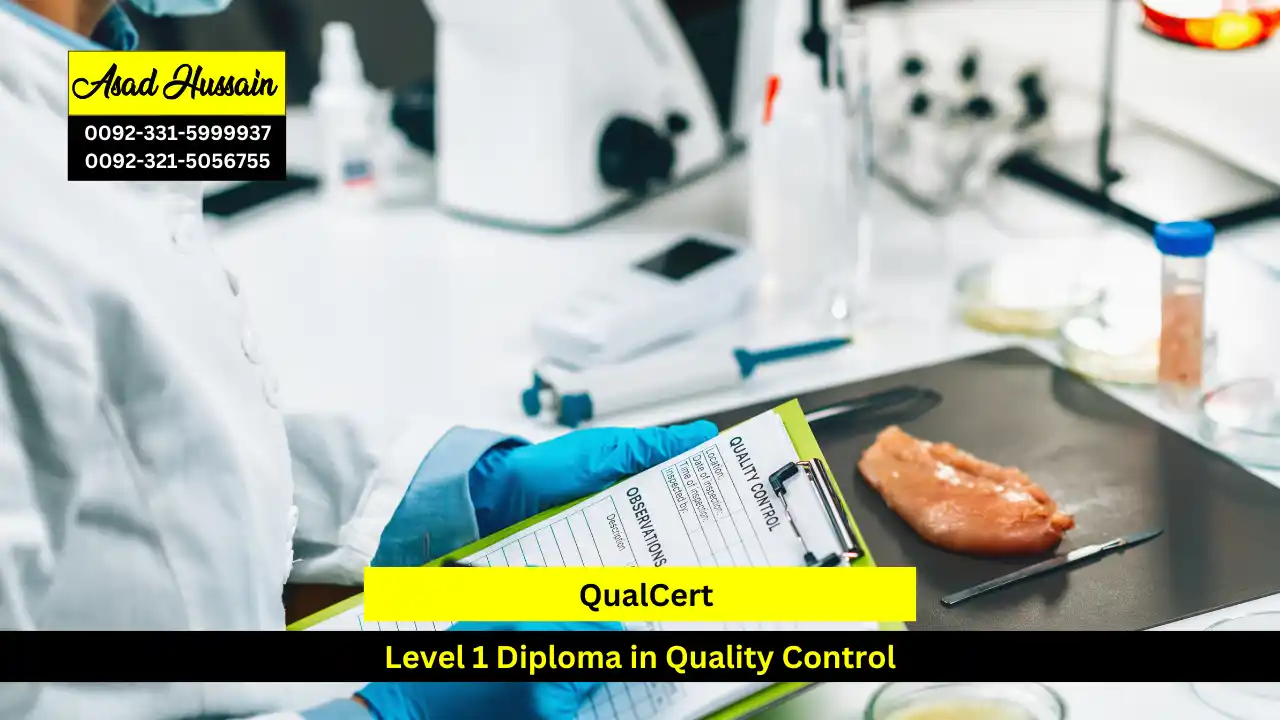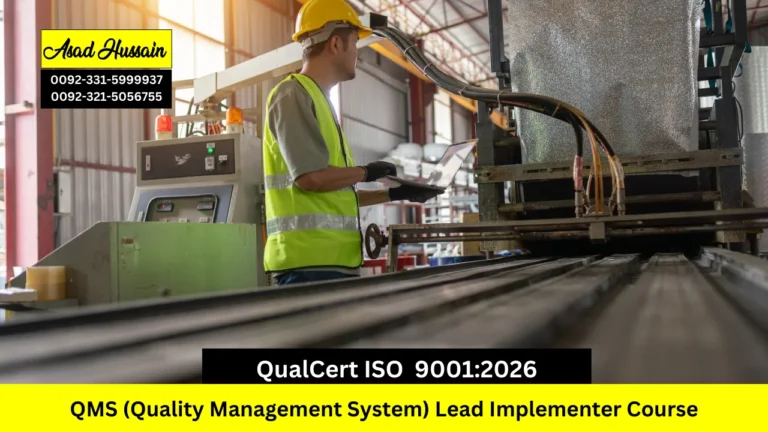Quality control (QC) stands as a cornerstone in industries where precision, consistency, and reliability are paramount. Whether in manufacturing, healthcare, or service sectors, QC ensures that products and processes meet stringent standards, enhancing customer satisfaction and operational efficiency. The Level 1 Diploma in Quality Control serves as a crucial entry point into this vital field, providing foundational knowledge and skills that form the bedrock of quality management practices.
Quality control is not merely about meeting regulatory requirements but is integral to maintaining competitive advantage and fostering trust among stakeholders. At its core, QC involves systematic monitoring, testing, and inspection of products and processes to identify deviations from established norms. By implementing QC measures, organizations can minimize defects, optimize production processes, and ultimately deliver products that meet or exceed customer expectations.
The Level 1 Diploma in Quality Control represents more than just a certification; it signifies a commitment to excellence and a foundation for a rewarding career in quality management. As industries continue to prioritize quality and reliability, professionals with QC expertise are increasingly valued for their contributions to organizational success. Whether launching a career or seeking to enhance existing skills, this diploma serves as a stepping stone towards mastering the art and science of quality control, ensuring products and processes meet the highest standards of performance and reliability.
Program Highlights
Mandatory Units
- Module 1: Introduction to Quality Control
- Module 2: Basic Quality Concepts
- Module 3: Quality Control Tools and Techniques
- Module 4: Quality Standards and Regulations
- Module 5: Quality Inspection and Testing Methods
- Module 6: Quality Management Systems (QMS)
- Module 7: Advanced Problem-Solving
- Module 8: Statistical Analysis in Quality Control
- Module 9: Quality Control Documentation and Reporting
- Module 9: Quality Control Documentation and Reporting
- Module 11: Quality Assurance and Continuous Improvement
- To ensure that participants can effectively engage with and benefit from the Level 1 Diploma in Quality Control (QC) course, we have established the following entry requirements:
- Educational Background: Typically, participants should have a high school diploma or its equivalent (such as a GED). Some programs may require a minimum level of education, such as completion of secondary education, to ensure participants have basic academic skills.
- Language Proficiency: Proficiency in the language of instruction (usually English) is essential to comprehend complex course materials, actively participate in discussions, and complete written assignments.
- Age Requirement: Participants must be at least 18 years of age to enroll in this course.
- Industry Experience: While not always required, some programs may prefer or recommend that participants have some prior industry experience related to the field they intend to study. This can provide valuable context for understanding quality control principles.
Introduction to Quality Control
- Understand the fundamental principles and importance of quality control in various industries.
- Recognize the historical context and evolution of quality control practices.
- Identify key stakeholders and their roles in maintaining quality standards within an organization.
Basic Quality Concepts
- Define core quality concepts such as quality assurance, quality control, and their interrelationships.
- Explain the significance of customer focus and satisfaction in quality management.
- Describe the costs of quality and their implications for organizational efficiency.
Quality Control Tools and Techniques
- Gain familiarity with basic quality control tools such as flowcharts, checklists, and Pareto charts.
- Apply statistical process control (SPC) techniques to monitor and improve process performance.
- Utilize root cause analysis and fishbone diagrams to identify and address quality issues.
Quality Standards and Regulations
- Understand the importance of international quality standards (e.g., ISO 9001) and regulatory frameworks in ensuring product and service quality.
- Describe the requirements and benefits of certification to ISO standards for organizations.
- Interpret compliance requirements and their implications for organizational practices.
Quality Inspection and Testing Methods
- Identify different types of inspection and testing methods used in quality control.
- Apply sampling techniques and acceptance criteria to assess product quality.
- Analyze testing results and make informed decisions regarding product acceptance or rejection.
Quality Management Systems (QMS)
- Explain the components and principles of a quality management system (QMS).
- Describe the process approach to QMS and its benefits for organizational efficiency.
- Evaluate the role of leadership and commitment in maintaining an effective QMS.
Module 7: Advanced Problem-Solving
- Apply advanced problem-solving techniques such as Six Sigma DMAIC (Define, Measure, Analyze, Improve, Control) methodology.
- Utilize statistical tools like regression analysis and hypothesis testing to address complex quality issues.
- Implement strategies for continuous improvement based on data-driven insights.
Statistical Analysis in Quality Control
- Apply statistical methods such as control charts (e.g., X-bar and R charts) to monitor process variability.
- Interpret statistical data to distinguish between common cause and special cause variations.
- Implement corrective actions based on statistical analysis to improve process stability and capability.
Quality Control Documentation and Reporting
- Create and maintain quality control documentation including inspection reports and non-conformance records.
- Communicate quality issues effectively to stakeholders using standardized reporting formats.
- Ensure accuracy and completeness of documentation to support decision-making and compliance.
Quality Assurance and Continuous Improvement
- Differentiate between quality assurance and quality control roles within an organization.
- Implement strategies for continuous improvement based on quality metrics and performance indicators.
- Engage stakeholders in quality improvement initiatives to foster a culture of continuous learning and adaptation.
These learning outcomes provide a comprehensive overview of the knowledge and skills learners can expect to gain from each module in the Level 1 Diploma in Quality Control program.
This course is designed for individuals aspiring to enter or advance within the field of quality control across various industries. It is ideal for recent graduates seeking to build a strong foundation in quality management practices, as well as professionals already working in quality assurance or related roles who wish to formalize their skills and expand their career opportunities. Additionally, supervisors and managers responsible for ensuring product and process quality will benefit from gaining a deeper understanding of quality control tools, techniques, and standards. This course caters to anyone passionate about maintaining high standards of excellence, enhancing organizational efficiency, and contributing to continuous improvement initiatives within their respective workplaces.







